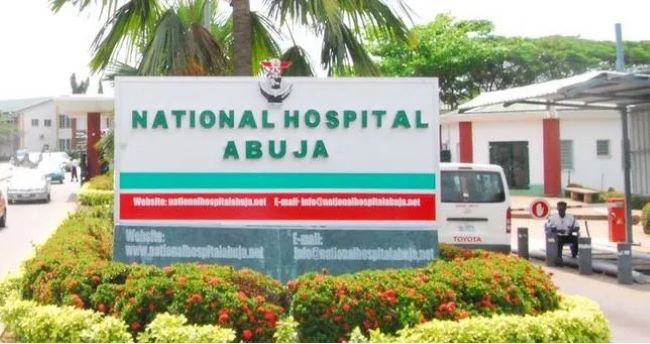National Hospital plans state-of-the-art medical facility to curb medical tourism
 The National Hospital, Abuja, has unveiled an ambitious plan to establish a state-of-the-art medical facility in Nigeria, aiming to reduce the country’s dependency on medical tourism.
The National Hospital, Abuja, has unveiled an ambitious plan to establish a state-of-the-art medical facility in Nigeria, aiming to reduce the country’s dependency on medical tourism.
The hospital’s Chief Medical Director (CMD), Prof. Muhammad Raji, announced this in an interview with the News Agency of Nigeria (NAN) in Abuja on Tuesday.
FG announces reforms to strengthen healthcare
Raji explained that the proposed facility would offer specialised services such as cardiac surgery, kidney transplants, and orthopaedic procedures – treatments that often drive Nigerians to seek care abroad.
“By providing these treatments here, we can keep our patients in the country and offer them the same quality of care,” he stated.
He also revealed plans to create a Neuro-Rehabilitation Centre, a facility currently lacking in Africa.
This, he said, would address the continent’s critical healthcare gaps.
He urged both the government and private sectors to support this vision, highlighting that such a facility would not only improve healthcare outcomes but also contribute to Nigeria’s economic growth.
The CMD, observing that the government could not shoulder the financial burden of healthcare alone, called for increased private sector involvement to bring in much-needed resources and innovation.
According to him, there’s a need for a stronger collaboration between the government, private sector, and philanthropists to address the pressing challenges facing Nigeria’s healthcare system.
“The government has many priorities, and while health is indeed one of them, we cannot solely depend on the government to cover hospital bills and other healthcare costs.
“We must engage philanthropists and private companies to contribute to healthcare services,” he said.
He also raised alarm over the dire consequences of power outages in hospitals, describing the situation as a crisis in itself.
He called for urgent government intervention and the exploration of alternative energy sources to mitigate the impact of power failure on healthcare delivery.
“Hospitals need to operate 24 hours a day with consistent power.
“When the electricity goes off, critical machines like ventilators, which are vital for patients’ survival, shut down, thereby posing a grave risk,” he said.
He commended the recent increase in the minimum wage of Nigerian workers, acknowledging it as a positive step for motivating healthcare workers.
He, however, stressed that more still needed to be done to ensure sustainable healthcare financing.












